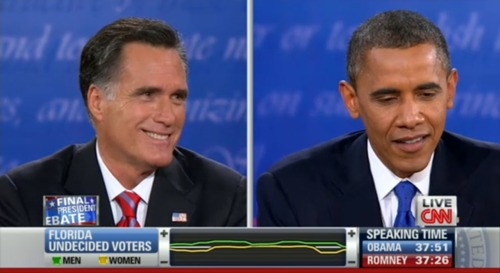Everyone else in Washington, DC and NY today is closed,
except for the Supreme Court (and Howard Stern). The Court granted cert in four new cases.
Per SCOTUSblog:
The Supreme Court, fully at work while most of the rest of official
Washington takes a weather day off, agreed on Monday to hear four new
cases, including a plea to give convicted individuals a new chance to
claim that their defense lawyers in state court failed to perform
adequately. That is an issue that arose in the wake of last Term’s
decision in Martinez v. Ryan. The new case on that question is Trevino v. Thaler (11-10870).
The other granted cases involve a test of whether a convicted
individual’s claim of innocence of the crime will be treated as an
excuse for failing to pursue a federal habeas challenge on time (McQuiggin v. Perkins, 12-126), clarification of how the Internal Revenue Service calculates the foreign tax credit (PPL Corporation v. Commissioner, 12-43), and whether misconduct by a trustee in bankruptcy has an effect on the debts to be discharged (Bullock v. BankChampaign, 11-1518).
UPDATE-- the Supreme Court will be closed tomorrow (Tuesday).
Mike Scarcella covers how a Romney administration would change DOJ. A very interesting piece:
Former U.S. attorneys general William Barr and Michael Mukasey are
among top ex-DOJ lawyers advising the Romney campaign on law enforcement
issues. The team also includes former Criminal Division assistant
attorney general Alice Fisher, the head of the Washington office of Latham & Watkins,
and George Terwilliger III, a former acting attorney general under
President George H.W. Bush, who recently announced that he'll be leaving
White & Case to join the D.C. office of Morgan, Lewis & Bockius on November 1.
Business
interest groups have pressed DOJ in recent months to provide a better
road map for companies to comply with the Foreign Corrupt Practices Act,
a powerful anti-bribery tool that has been a boon for Holder's
department. Addressing the FCPA and white-collar investigations,
Terwilliger last week published a paper through the U.S. Chamber of
Commerce's Institute for Legal Reform insisting that DOJ give companies a
clearer sense of the foundation when charges are not brought. In short:
Corporations want better-defined boundaries, he said.
Some
critics see stepped-up FCPA actions as a hindrance to American
competitiveness abroad. Not Lanny Breuer, the DOJ Criminal Division
leader. In a speech last week in London, Breuer argued the department's
FCPA work has helped "level the playing field for U.S. and foreign
companies, and motivates corporations to create genuine cultures of
compliance."
Compliance expert Alexandra Wrage, president of TRACE
International and a former chair of the American Bar Association's
anti-corruption committee, said any attorney general under Romney would
have a difficult time trying to scale back FCPA enforcement considering
how much money companies have pumped into compliance in recent years.
"The floodgates are open now," Wrage said.
In the False Claims Act arena, Elizabeth Papez, a Winston & Strawn
litigation partner in Washington, said DOJ's "unprecedented enforcement
agenda and record whistleblower awards" have created a backlog of cases
for the department to investigate — whether Holder is leading the
agency or another attorney general. Since 2009, according to DOJ, the
department has recovered more than $11 billion under the FCA.
"The
cost and uncertainty associated with prolonged investigations and
delays in government intervention decisions can be a drain on the
department and businesses that everyone should want to minimize," Papez
said in an email. (Papez, a member of Romney's legal advisory team, said
she was not speaking for the candidate.)
Closer to home, Rumpole covers Judge Milton Hirsch's ruling on fingerprints, which prohibits the State's expert from saying that the prints are "a match."
The order is an excellent read.
From Dave Ovalle's
article:
In his order on the Borrego case, Hirsch analyzes the origin of fingerprint science, from Shakespeare’s The Second Part of King Henry to Mark Twain’s Life on the Mississippi to the British pioneering of fingerprint evidence in 19th-century colonial India.
In his order, he says that “no one can articulate a principle of
anatomy, biology, physiology, pursuant to which two persons cannot have the same fingerprint.”
Attorney
Tamara Lave, a University of Miami professor of criminal procedure,
said that she believes Hirsch is right. The reason: experts such as
those at the National Academy of Sciences — which authored a 2009 study
on forensic evidence — say language describing an “absolute” fingerprint
match is “unjustified.”
“What is unique is the joy in which he
wrote his opinion. Most judges don’t go through the trouble of quoting
Shakespeare and great works of American Literature,” Lave said.
Read more here: http://www.miamiherald.com/2012/10/28/3071658_p2/miami-dade-judge-rules-fingerprint.html#storylink=cpy
Read more here: http://www.miamiherald.com/2012/10/28/3071658/miami-dade-judge-rules-fingerprint.html#storylink=cpy






